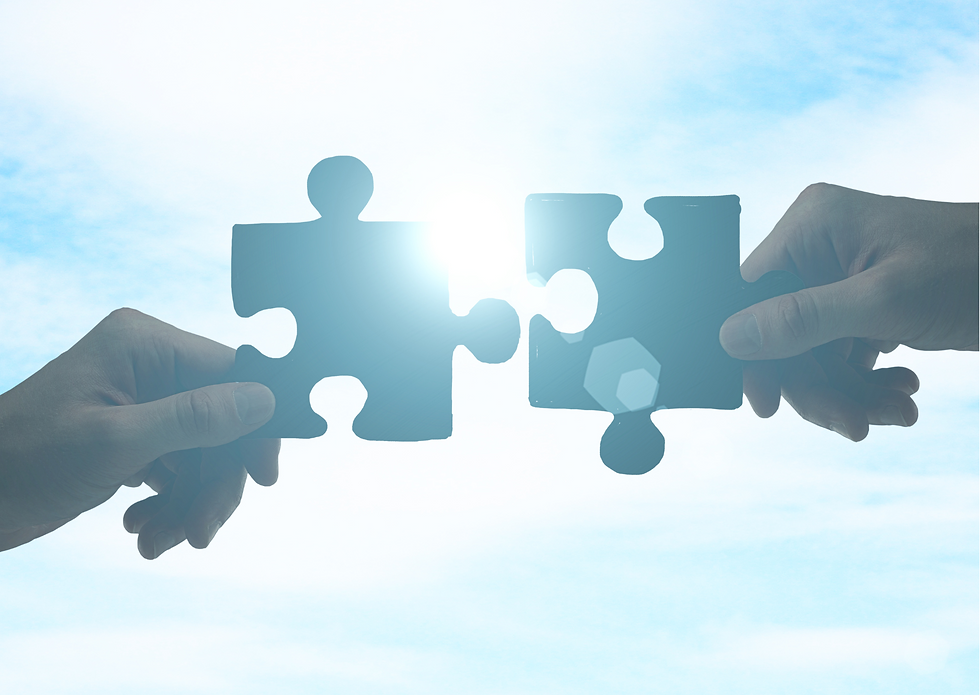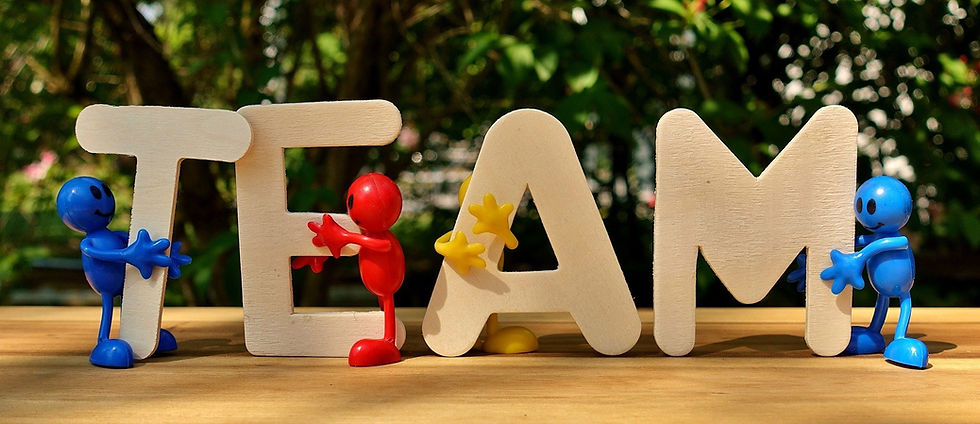Relationship Skills - we're in this together
- Mary Ely
- Oct 19, 2022
- 3 min read
RocheMartin defines Emotional Intelligence by a set of 10 competencies and this is one in a series of blogs covering each one: Why develop Relationship Skills, what is it exactly and how can you develop it?
Why develop Relationship Skills?

...because, as the name suggests, it's all about relationships and therefore important for your home life, for leadership, for all your work relationships and for effective teamwork.
And more specifically
It leads to healthy, productive, win-win relationships that focus on collaboration and partnership, recognise the value that everyone brings to the relationship and that feel good!
...and any other type of relationship involves an imbalance of control or power which tends not to feel nice, bring out the best in people or create the best results from the relationship.
Projects example
I have worked on many technology projects and observed the impact the client-consultant relationships have on how well the project goes. And when the two organisations work collaboratively as partners, the output of the joint team has always been better and the project experience far more enjoyable.
But that's not always the case:
Consultants assume superiority...
This can easily lead to frustration, resentment and a lack of engagement from the client. “Who do they think they are?!”.
It can also lead to good ideas being missed or a solution not taking into account key information due to an unwillingness from the client to share.
Clients assume superiority...
And treat consultants almost as inferiors that can’t be trusted. They are there to do the client’s bidding. They need to be ruled with an iron fist. The client is determined to “get their money’s worth” from the consultants and make sure they don’t step out of line.
That easily leads to resentment and a really difficult environment to work in. I’ve seen hours wasted on projects where consultants have had to spend time justifying their every last move rather than just getting on with what needs to be done.
..and the same is true for relationships between teams in any business and in our personal relationships.
If you look at it the other way
How much time and effort would you want to spend on a relationship with someone who is really controlling, acts like they’re better than you, is out for themselves or who won’t consider your perspective?
We are far more likely to stay in relationships that meet our needs, where we feel equal, where we feel like our perspective is heard, respected and taken into account and where we’re contributing to any outcomes.
Relationships where we feel that
“We’re in this together”

What is the Relationship skills competency about exactly?

The Relationship Skills competency focuses on the attitudes we take into our relationships, that impact how they turn out!
As with all the RocheMartin emotional intelligence competencies, Relationship Skills can be broken down into 3 components, which help to pinpoint your areas of strength and areas for development.
The 3 components of Relationship Skills are
Equality
Treating everyone as your equal. No better, no worse. No judgement. We may be different, but we're all equal.
Mutuality
Always aiming for win-win relationships. How can we all get something we want from the relationship?
Empowerment
Creating the opportunity for shared contribution, control and responsibility that leads to buy-in and motivation to work together.
It’s these three components that impact how we approach relationships, and
When we go into relationships with equality, mutuality and empowerment in mind, we’ll come out with collaborative partnerships!
How can you develop the Relationship Skills competency

Coaching is by far the most efficient, effective, engaging, empowering and enjoyable way to build any of the Emotional Intelligence competencies.
Helping you to develop, refine and embed your own personalised strategies for each competency.
And this blog contains some ideas for you to experiment with on your own that have worked for me and my clients.
If you’re interested in understanding your level of emotional intelligence using one of the RocheMartin assessments or would like to explore coaching for developing components of it like Empathy or Relationship and Communication Skills as a whole, you can book a free call here.
And if you'd like to try out my monthly emails that provide a roundup of my blogs as well as other insights, you can sign up here.



Comments